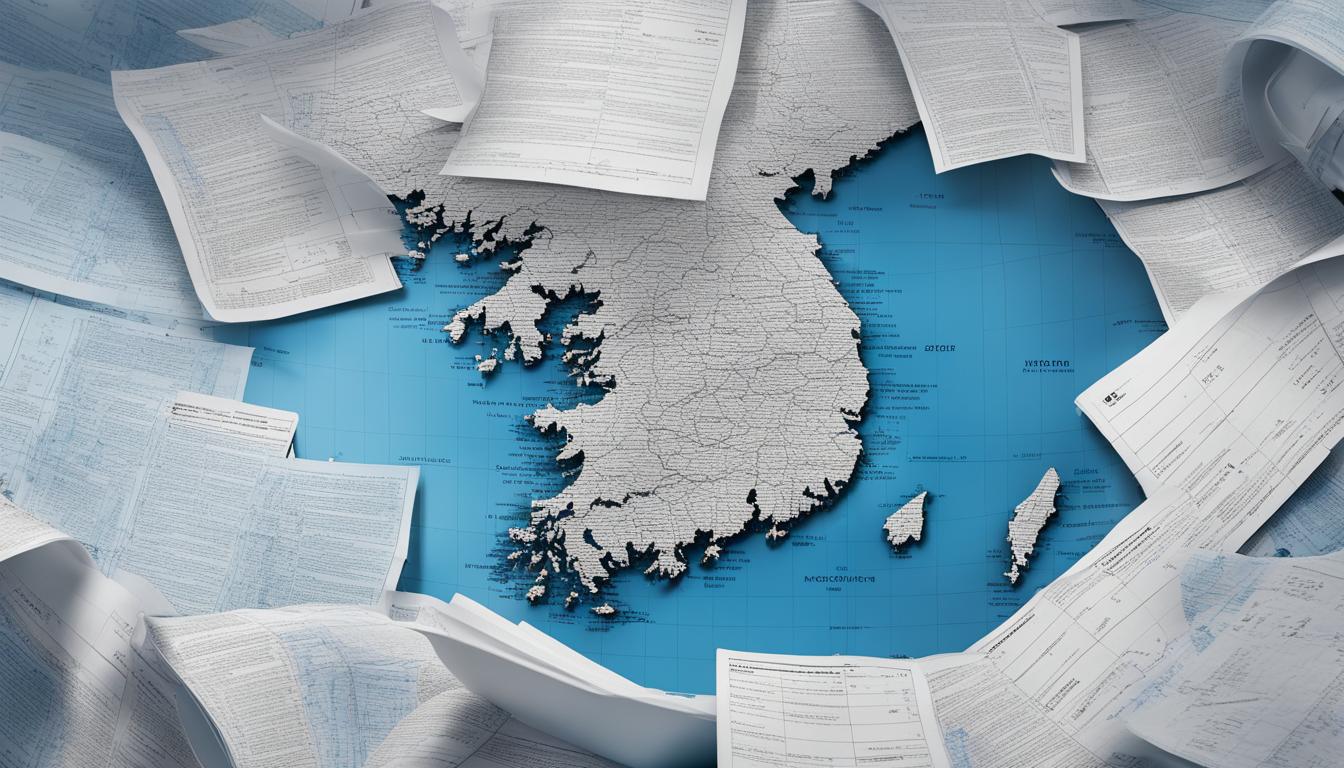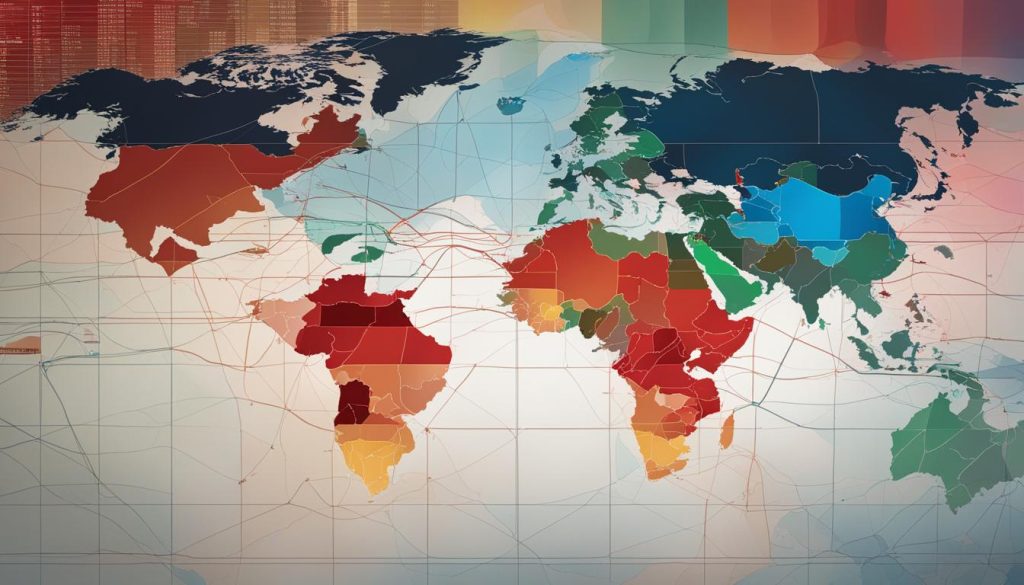The realm of Forex trading in various nations brings with it a tapestry of laws and regulatory measures, with investors and traders often asking, “is forex trading legal in South Korea?” In the pulsating heart of East Asia’s financial landscapes, South Korea stands out with a robust legislative framework that governs its currency trading markets. While the legality of forex trading in South Korea is affirmed, it is encompassed by a stringent set of parameters designed to safeguard its economy and market participants.
South Korea’s approach to Forex trading legality is heavily influenced by measures akin to those in nations such as China and Japan. With the market under the vigilant eyes of regulatory bodies, the rules encapsulate capital controls that restrict traders from indulging in activities with overseas brokers, thereby impacting the dynamics of forex trading legality in South Korea. This controlled accessibility, however, is the bedrock upon which the country’s financial integrity rests.
Under the supervision of the Financial Services Commission and the Bank of Korea, Forex trading operates within a legal yet tightly regulated sphere. Establishing an environment with maximum leverage limits stringently pegged at 1:10, South Korea ensures that while trading options are available, they are executed with the utmost prudence and within the boundaries of legal frameworks.
The question of “forex trading legality in South Korea” thus unravels a complex, well-structured answer, delineating a clear yet controlled path for traders within the nation’s borders. Such regulations exemplify South Korea’s dedication to fostering a secure and well-regulated Forex trading environment, which, despite its restrictions, remains a bastion of legal financial activity.
Understanding the Legal Landscape of Forex Trading in South Korea
As a global leader in technological advancement and financial innovation, South Korea has established a regulatory framework that reflects its commitment to maintaining a robust financial services industry. Understanding the South Korean forex market regulations is crucial for traders and financial institutions aiming to navigate the system effectively. The collaborative governance by the Financial Services Commission (FSC) and the Bank of Korea has resulted in a distinctive set of forex trading laws in South Korea.
The core objectives of these stringent regulations are manifold, with investor protection and market stability at the forefront. By implementing restrictive measures, South Korea aims to mitigate risks and prevent potential market disruptions. The following elucidates the key aspects of forex regulations in South Korea, providing insight into their practical implications.
- Mandates for broker operations within the territorial jurisdiction of South Korea
- Enforcement of capital controls to prevent free inflow and outflow of funds for FX trading
- Regulations on maximum leverage offered to traders
- Strict monitoring and reporting protocols for financial transactions in the forex market
The emphasis on control is not solely to confine market participants but to foster a responsible trading environment. Below is a comparison between the legal provisions enforced on domestic brokers versus individual traders.
| Market Participant | Regulatory Provisions | Legal Implications |
|---|---|---|
| Domestic Brokers | Registration with FSC, strict capital adequacy, and risk management practices | High operational standards ensuring solvency and compliance |
| Individual Traders | Limitations on foreign account holdings, restricted leverage ratios | Protected from excessive market exposure and potential financial instability |
To further elucidate, the FSC’s role is not to constrict but to provide a clear pathway for safe market participation, while the Bank of Korea contributes to policy development and stabilization strategies. Such coordinated efforts have garnered South Korea’s reputation as a secure and transparent forex market.
The comprehensive oversight by aforementioned regulators ensures that any changes in global economic landscapes are met with agile and effective policy adaptations. For instance, during periods of significant financial fluctuations, South Korea has been adept at implementing timely safeguards, reinforcing the security of the South Korean Forex Exchange and investor’s assets.
Exploring South Korea’s Forex Trading Legal Framework
South Korea’s landscape for forex trading is characterized by a stringent regulatory environment that closely scrutinizes retail trading activities. Forex traders and brokers operating in the South Korean market are subject to a comprehensive legal framework, ensuring compliance and safeguarding the interests of investors.
Current Regulations Impacting Retail Forex Trading
Forex trading regulations in South Korea have been designed to maintain a firm grip on the domestic financial market. Stringent South Korean forex trading laws oblige all retail forex trading to be conducted via domestic brokers, who must adhere to tight operational constraints set forth by financial authorities. These measures have been implemented to avert systemic risks and maintain financial stability, particularly in volatile economic climates.
Comparative Analysis: South Korean Laws vs. Other Global Forex Regulations
Unlike the permissive trading environments in parts of Europe, South Korea’s forex market is notable for its cautionary stance. While European traders enjoy fewer restrictions, South Korea insists on a rigorous set of controls, mirroring the conservative approach taken in nations like Japan. The contrast between South Korean forex trading regulations and those of less restricted jurisdictions underscores the conservative nature of Asian financial markets.
| Aspect | South Korea | European Union |
|---|---|---|
| Maximum Leverage | 1:10 | Up to 1:30 for major pairs |
| Brokerage Options | Domestic Only | Domestic and International |
| Regulatory Bodies | Financial Services Commission | Various EU National Authorities |
| Trader Protections | Capital Controls & Strict Oversight | Regulatory Protections with some Flexibility |
Registration and Regulatory Bodies Governing Forex in South Korea
In the dynamic landscape of global finance, South Korea stands out for its stringent regulatory environment, particularly when it comes to forex trading. A key player in refining and implementing South Korean forex trading laws, the Financial Services Commission (FSC), alongside the Bank of Korea, take on critical roles in the legalities of forex trading in South Korea.
The Role of the Financial Services Commission (FSC)
The FSC, South Korea’s financial watchdog, serves as the primary architect behind the country’s strict forex trading regulations. It is tasked with setting the bar for legal and ethical standards within the market, diligently monitoring the operations of domestic brokerage firms. Through comprehensive oversight, the FSC ensures that brokerages adhere to fair trading practices and investor protection, which are cornerstones of a well-regulated financial trading system.
The Bank of Korea’s Involvement in Forex Oversight
Supporting the FSC’s objectives, the Bank of Korea injects a robust level of scrutiny into the forex market, especially concerning foreign exchange rates and monetary policy. Its prudent measures are designed to fortify the trading environment, thereby maintaining market stability and investor confidence in the face of domestic and international economic shifts. The synergy between the bank and the FSC facilitates a transparent, predictable, and secure framework for forex trading, reflecting the country’s commitment to regulatory excellence.
Recent initiatives by the Bank of Korea signal its willingness to adapt to global trading trends and align the domestic market with international standards. This progressive attitude is exemplified by policies favoring the gradual inclusion of offshore brokers in the South Korean market, accompanied by extended interbank forex trading hours, thereby increasing accessibility and competitiveness in the Korean Forex sphere.
While navigating through South Korea’s forex trading laws, comprehensive knowledge of both the FSC’s guidelines and the Bank of Korea’s oversight approach is indispensable for traders and brokers alike. These institutions not only construct the legal framework for forex trade in the country but also act as vigilant custodians of the market’s integrity and sustainability.
Forex Trading Platforms and Brokerage Options in South Korea
South Korea has tailored its forex market regulations to create a robust and secure environment for traders within its borders. These measures address the legality of forex trading in South Korea by mandating compliance with stringent financial oversight while fostering advanced trading capabilities. In particular, the country has become a hub for high-quality, proprietary trading platforms, mostly provided by domestic brokerage firms deeply ingrained in the local trading ecosystem.
Despite these restrictive conditions, specifically the cap on leverage and stringent capital controls, global brokerage houses are seeking to establish a foothold in this dynamic market. They are achieving this by leveraging South Korea’s sophisticated technological infrastructure to offer state-of-the-art trading platforms geared towards seasoned traders. Offering a plethora of financial instruments, these platforms come hand-in-hand with expansive educational content and customer service, aiming to meet the high standards of the local trading community.
Thus, while domestic brokers dominate the South Korean landscape, the continuing push from international firms broadens the choices for local traders. This progressive integration allows traders to align with platforms that resonate best with their individual trading strategies and educational needs, all within the general framework of South Korea’s forex market regulations. The legality of forex trading in South Korea remains undebatable, presenting a harmonious blend of regulatory security and innovative trading solution choices for every level of investor.
FAQ
Yes, forex trading is legal in South Korea, but it is subject to stringent regulations and oversight by the Financial Services Commission and the Bank of Korea. South Korean traders are restricted to using domestic brokers, and leverage on trades is capped at a low level of 1:10.
South Korea has strict forex market regulations that include capital controls, preventing Korean Forex traders from opening accounts with foreign brokers. All domestic brokers must operate under tight restrictions and are overseen by local authorities to ensure compliance with the financial laws.
Retail forex trading in South Korea is tightly controlled, with regulations limiting the maximum amount of leverage available to traders and requiring them to trade through domestic brokers, which must adhere to the legal framework set by the FSC.






